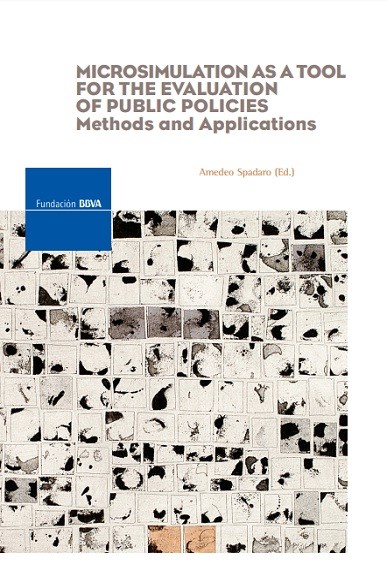
PublicationMonographs
Microsimulation as a Tool for the Evaluation of Public Policies
Methods and Applications
‘Microsimulation as a Tool for the Evaluation of Public Policies: Methods and Applications’ brings together the contributions of the experts participating in the international workshop of the same name, supported by the BBVA Foundation. This was also the occasion for the public presentation of a microsimulation tool for predicting the future effects on the Spanish population of changes in the taxation system, with particular reference to personal income tax.Those interested can access this tool on the Foundation website.
The book explains the theoretical foundations of microsimulation as a microeconometric technique for the evaluation of public policy. Based on the representation of individuals’ behavior when confronted with real or hypothetical changes in their economic or institutional environment, microsimulation techniques work with extremely rich and accurate models to predict the impact of a given policy on a sample of individuals, households or businesses representing the population as a whole. Its chapters take the reader through some concrete applications of models developed in Spain, Italy and Norway, dealing with healthcare, energy, tax and agricultural fields, international trade and, even, supranational policies to combat poverty.Microsimulation models, with their power to evaluate different scenarios on an ex-ante basis, can contribute to more efficient public policies, providing valuable input for decision making.
